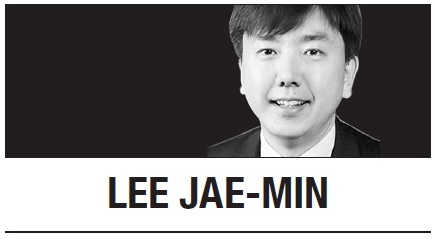 Recent price hikes for housing in Seoul have fanned deep frustration among those living outside Seoul. While prices in Seoul are going through the roof, real estate markets elsewhere are struggling with too many vacancies. Local money is flocking to the Seoul real estate market in droves. As ever, people and money keep coming to Seoul.
Recent price hikes for housing in Seoul have fanned deep frustration among those living outside Seoul. While prices in Seoul are going through the roof, real estate markets elsewhere are struggling with too many vacancies. Local money is flocking to the Seoul real estate market in droves. As ever, people and money keep coming to Seoul.Seoul’s status as a powerful magnet for people and national resources is a chronic problem for Korea. The Seoul Metropolitan Area accounted for 49.5 percent of the national GDP and (coincidentally) 49.5 percent of the country’s population in 2017. Which is why the government’s plan in 2005 to disperse governmental agencies and public institutions across the nation was not only proper but essential. Relocation started in 2007, and 153 agencies have since found new homes in 10 cities. The culmination of this plan occurred in 2012, when the Sejong Administrative Capital first appeared on the map. Stay tuned: The government is now contemplating a second wave of relocation, one where 122 additional institutions will be asked to leave Seoul.
After 11 years, the relocation is still unfinished business. Every relocated institution has its own story of staff loss, hiring difficulties and an infrastructure vacuum. A recent article in the Wall Street Journal about the National Pension Service in North Jeolla Province typifies these struggles.
Hopefully, logistical difficulties will get better with time. Construction of buildings and roads is proceeding fast. Social and cultural infrastructure is catching up.
The real question, though, is how to handle the structural problem. After the move, the agencies and institutions had to leave one foot in Seoul. Events, meetings and conferences have not followed them to their new locations. They still take place in Seoul, and officials and employees are expected to attend. Under the circumstances, it is hard to harness the benefits of relocation. Efficiency is an easy victim when an institution is essentially forced to maintain two offices.
Perhaps what is most to blame is a detached and divided decision-making process. For any given institution, important decisions must still be made in the capital. Which means the heads of the agencies and ministries are forced to travel to Seoul on a regular basis. Their time and presence are split between Seoul and their official headquarters. A great deal of work has to be done on the KTX bullet train and over messenger programs.
If we are truly serious about decentralization, decision-making processes should be localized as much as possible. Leaders and CEOs should spend more of their time at their official headquarters, instead of at liaison or branch offices in Seoul. To achieve that, cooperation from powerful agencies in Seoul -- such as the National Assembly, the Board of Audit and the Blue House -- is an absolute must. That is the only way to achieve the intended objective of decentralization as we mark the 11th anniversary of the move.
This year’s National Assembly audit starts Oct. 10. Dozens of government officials and company representatives will be called to testify, as usual. They will have to travel to Seoul and stay here. By way of example, the National Policy Committee alone -- one of the most prominent of the national Assembly’s 18 standing committees -- has called as many as 217 witnesses to testify during its two-week session. On my count, about half are from local offices. Much of their time in October will be spent on the road. When the second wave of relocation is complete, the majority of witnesses at future audits will be chosen from local towns.
Truly, decentralization is an important solution to one of the nation’s oldest conundrums. But its success can only be achieved if it is done right. As we mark the 11th anniversary of the national policy and contemplate the next step in this massive move, it is time to evaluate the past 11 years and see what can be done better.
Lee Jae-min
Lee Jae-min is a professor of law at Seoul National University. He can be reached at jaemin@snu.ac.kr. -- Ed.








![[Graphic News] More Koreans say they plan long-distance trips this year](http://res.heraldm.com/phpwas/restmb_idxmake.php?idx=644&simg=/content/image/2024/04/17/20240417050828_0.gif&u=)
![[KH Explains] Hyundai's full hybrid edge to pay off amid slow transition to pure EVs](http://res.heraldm.com/phpwas/restmb_idxmake.php?idx=644&simg=/content/image/2024/04/18/20240418050645_0.jpg&u=20240419100350)





![[From the Scene] Monks, Buddhists hail return of remains of Buddhas](http://res.heraldm.com/phpwas/restmb_idxmake.php?idx=652&simg=/content/image/2024/04/19/20240419050617_0.jpg&u=20240419175937)

![[KH Explains] Hyundai's full hybrid edge to pay off amid slow transition to pure EVs](http://res.heraldm.com/phpwas/restmb_idxmake.php?idx=652&simg=/content/image/2024/04/18/20240418050645_0.jpg&u=20240419100350)

![[Today’s K-pop] Illit drops debut single remix](http://res.heraldm.com/phpwas/restmb_idxmake.php?idx=642&simg=/content/image/2024/04/19/20240419050612_0.jpg&u=)